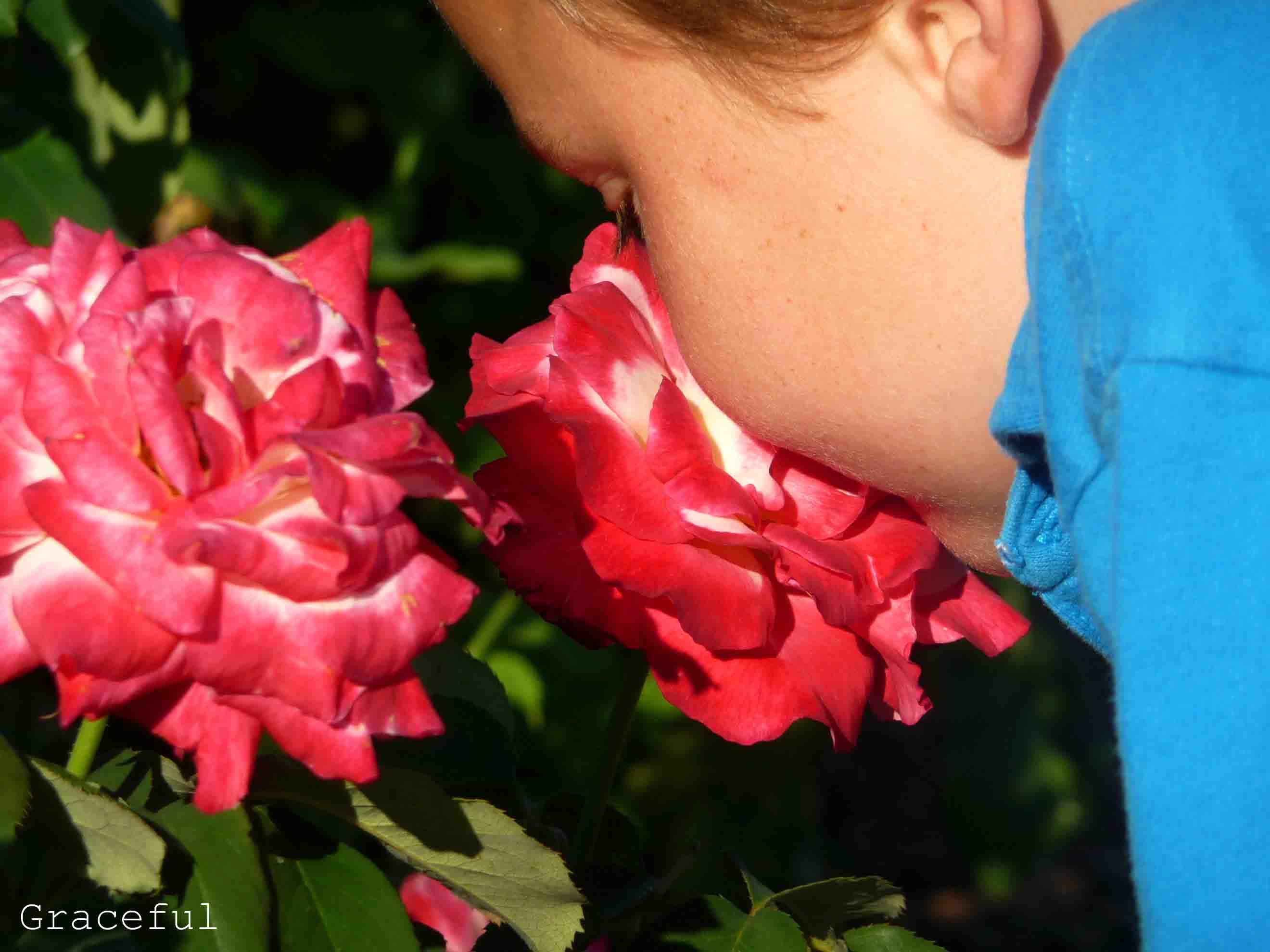By Michelle (Graceful, Faith in the Everyday)
I'm not one of those overzealous moms – the ones who enroll their kids in every next thing: soccer, T-ball, French horn, yoga for toddlers, Portuguese, Tai Chi.
 Don't get me wrong – it's not because I'm self-righteous and virtuous and protective of my children's childhood. It's because I am simply lazy. The thought of schlepping Noah and Rowan back and forth, night after night and weekend afternoons to games and practices and recitals, combined with work and grocery shopping and Walgreens and trips to the post office paralyzes me. Frankly, I'm much too self-centered to spend all that time shuttling my children.
Don't get me wrong – it's not because I'm self-righteous and virtuous and protective of my children's childhood. It's because I am simply lazy. The thought of schlepping Noah and Rowan back and forth, night after night and weekend afternoons to games and practices and recitals, combined with work and grocery shopping and Walgreens and trips to the post office paralyzes me. Frankly, I'm much too self-centered to spend all that time shuttling my children.
Yet I do strive to involve them in some activities, because heaven forbid, I wouldn't want them to become "nothing kids."
My friend Viv tells the story of her mom, who would always hang the threat of the do-nothing kid over her and her siblings' heads. She didn't want her kids "hanging around" the house, watching General Hospital and tossing back Cool Ranch Doritos. "I won't have nothing kids in this house," she’d tell her kids.
I get this. Kids need to be busy. Kids need to be entertained. Kids need activities and distractions and learning and growing opportunities. Kids need to be occupied and frankly, kids need to keep up with their peers.
This isn't a problem for Rowan, my youngest. He's naturally gregarious and adventurous – drawn to social situations and always ready to try his hand at something new. Noah, my oldest, on the other hand, is my more contemplative child. He loves nothing more than to swing in the hammock, gazing up at golden honey locust leaves against the sapphire sky.
This didn’t seem like enough to me – this dabbling in the backyard, this roaming around the neighborhood, spotting yellow finches in the spirea shrub and swallowtails on the clematis. These activities didn't seem structured enough to “count.” That is, until I read Ann Kroeker's book Not So Fast: Strategies for the Fast-Paced Family, and I began to reconsider and redefine what should count.
"But why do I have to try out for choir?" Noah would bemoan. "Why do I have to learn a sport?" he would complain. And my answer was always the same: "Because you can't be a do-nothing kid."
"But I'm not a do-nothing kid," Noah would protest. "I ride my bike. I have succulent and tropical plant collections. I'm learning about bonsai. I read. I catch grasshoppers. I draw pictures and have art sales. I do a lot of stuff. I'm not a do-nothing kid!"
"That's all really good stuff, honey, it is," I would reply, my voice climbing into a higher pitch. "But you need to do other stuff, too. Activities with kids. Or team sports. Things that will teach you how to hang out with other people."
Or does he? What will happen to Noah if he doesn’t enroll in the activities I consider “normal” for a child his age? Will he be scarred for life? Will he be unable to relate to other people? Whose life is it anyway…his or mine?
Ann Kroeker puts it this way in Not So Fast:
"We do have a choice in how we raise our children. If we want to give them a high-speed childhood charging toward adulthood full steam ahead, then, sure, we can do that. There’s a cost to living that way, but some people feel that the cost is worth it…many people feel confident of their choices in spite of the mania…
Or we can live a slower life. A more deliberate and focused life. A counter-cultural life that embraces the value of rest as well as work. Instead of letting the world define success, we can live a life that discovers the definition of success rooted in Scripture."
Noah naturally lives this slower, more deliberate and focused life. That’s how he’s made. So, I’m wondering, who am I to force him in a different direction, to force him to fit a different mold? Perhaps, as Ann so astutely notes, I am letting the world, rather than God, define success for me, as well as for my children.
I think, in the end, there is a balance – the trick is in discovering where that balance rests. It’s different for each of my children. It’s different for my husband and me. What I’m learning, again and again, is that different is not necessarily “wrong” or “worse.” It’s just simply different. And the key is to remember that God created each of us uniquely different…and to trust that he will help us find our own unique path.
 Michelle is a Christian wife and mother of two originally from Massachusetts now living in Nebraska. She is a part-time writer, editor and fundraiser for Nebraska PBS/NPR. Michelle loves to write about how her family illuminates God's presence in her everyday life, and on finding (and keeping) faith in the everyday. Michelle enjoys reading, running and writing. Be sure to go visit her blog, Graceful, Faith in the Everyday.
Michelle is a Christian wife and mother of two originally from Massachusetts now living in Nebraska. She is a part-time writer, editor and fundraiser for Nebraska PBS/NPR. Michelle loves to write about how her family illuminates God's presence in her everyday life, and on finding (and keeping) faith in the everyday. Michelle enjoys reading, running and writing. Be sure to go visit her blog, Graceful, Faith in the Everyday.